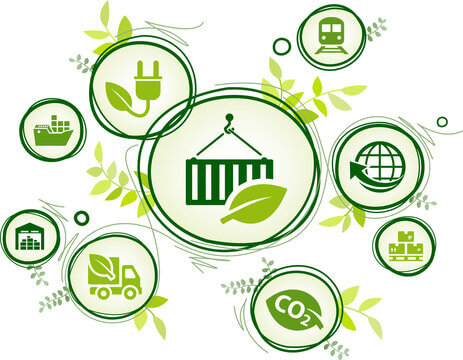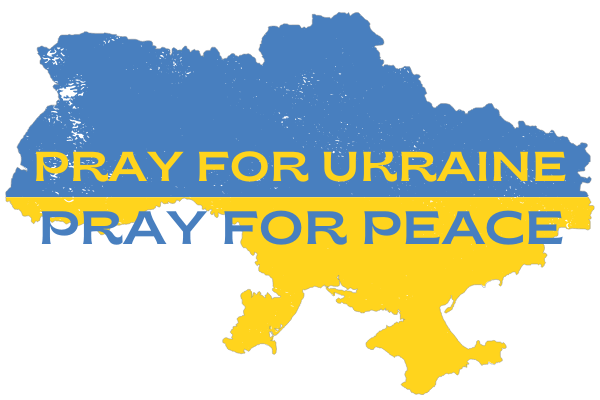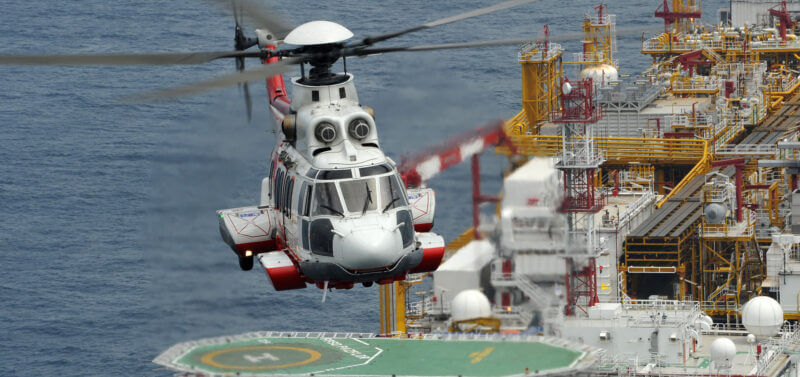The war in Ukraine has a major impact on goods flows worldwide and creates great uncertainty in supply chains. Companies are busy re-routing goods flows and VDL Nedcar can no longer get parts. In the long term it will lead to more reshoring and companies will switch to green energy more quickly, experts expect. The current unanimity in Europe is a favorable side-effect for this. War and sustainability of Supply Chains may therefore have a correlation.
Russia’s invasion of Ukraine and the resulting geopolitical tensions are giving supply chain people around the world headaches. All kinds of acute problems have to be fixed, such as Ukrainian drivers dropping out, containers that can no longer be transported by train from China to Europe and ports in the Black Sea that have been closed, in addition to the sanctions imposed on Russian banks and companies. VDL Nedcar even has to temporarily halt production because a supplier with factories in Ukraine can no longer supply wiring harnesses.
4PL company Caroz, which monitors and manages transport flows worldwide, warns its customers about rising fuel prices, cyber attacks and restrictions on air transport. ‘Containers are stuck in all kinds of places around the world and we have to find alternatives for customers to get their goods to their destinations,’ says director of operations Mike Heijnen. It’s all hands on deck for us at the moment and we’re trying to help our customers as best we can with creative solutions.
Re-routing flows
Patrick Haex of Buck Consultants notes that many questions are coming in about the re-routing of goods flows en route to Russia. ‘Customers want to store or re-rout goods in transit in Western Europe or in Finland. After all, products that are in Russia are difficult to remove and sell elsewhere. More and more service providers are also no longer accepting bookings to Russia, such as DHL and Kuehne + Nagel, for example.
According to Haex, all this depends on the incoterms that companies have agreed: is the buying or the selling party responsible for the transport before and after? And does the selling party want to export the goods to Russia at all? Currency agreements are also very relevant at the moment. The sanctions have caused the ruble to fall dramatically in a short space of time, so if you are paid in rubles but you buy in dollars, it is questionable whether transactions are still profitable.
Reshoring gaining momentum
In the somewhat longer term, Haex believes the conflict will lead to more reshoring: European companies pulling their production activities back from Asia and going back to producing closer to the market. Companies want to reduce the vulnerability of their supply chains. That trend already started during the corona epidemic, but the geopolitical tensions around Ukraine will make it more urgent, I expect. With fuel prices exploding and with them transportation costs, the make in region, sell in region principle will only become more attractive.’
Transition to non-fossil
According to Gerard Ekhart, this is perhaps the positive side of this otherwise so incredibly tragic conflict. As a business doctor and trend watcher in the manufacturing industry, he has been hammering on the need for companies to break away from their CO2-emitting and earth-depleting supply chains for some time. ‘I think the war will magnify the already existing energy crisis and accelerate the transition. This shock wave may cause companies that are still dragging stuff from one side of the earth to the other to finally make the transition to non-fossil fuel. The technology for this has existed for a long time, but management always held back. If the price of oil continues to rise and we want to be less dependent on Russian gas within Europe, this will soon change.’
Europe united
A ray of hope in the current crisis, he says, is the enormous unity that currently exists within the European Union. That, too, is necessary for an energy transition, because as a country you can’t do it on your own. And just as we are now suddenly working very closely together in Europe in the area of defense, we must also do this with our industrial policy and the building of sustainable supply chains. In fact, in Europe only the automotive industry is still relatively autonomous, other industries we have dismantled in Europe and largely relocated to other parts of the world. We will have to restore this but with clean technology. Supply chain people have to take the lead in this.’
The war in Europe is terrible and, above all, brings a lot of misery. The whole world sympathizes with the people in Ukraine who are fighting for their lives and freedom. The challenges facing the supply chain community are not comparable. Most acute for them are international shipments hampered by rising fuel prices, disruptions and closures of supply routes, cyber attacks and driver shortages. It will prompt companies to make their supply chains less vulnerable in the future and bring production back to Europe. If they then simultaneously make the much-needed transition to a sustainable supply chain, that is a side effect that can still be called somewhat positive.
Ukraine | War can accelerate sustainability of supply chains | is written by Harm Beerens | for magazine SCM – Supply Chain Media





